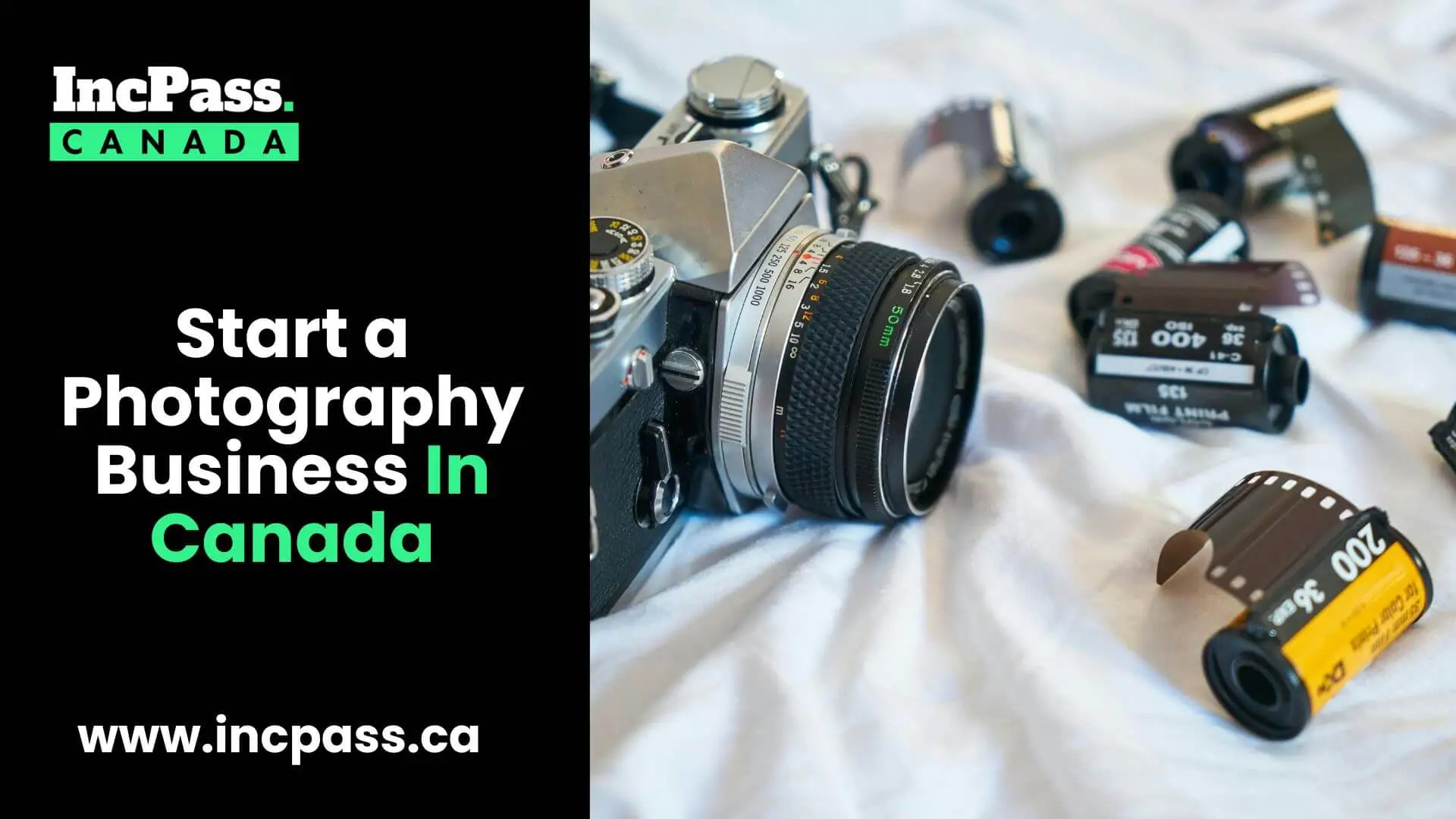Are you passionate about capturing life’s moments with your camera? Have you ever considered pursuing your passion for photography as a lucrative commercial endeavor? Starting a photography business in Canada could be the perfect opportunity for you. With its dynamic culture, varied landscapes, and strong economy, Canada provides an atmosphere that is ideal for budding photographers to start their own companies. In addition to that, the photography industry in Canada is robust and dynamic, catering to a wide range of clients and niches. From wedding photography and portraiture to commercial and editorial photography, there is a demand for skilled photographers across various sectors. The emergence of digital technology and social media has led to an increase in the need for superior visual content, hence providing photographers with numerous avenues to exhibit their skills and abilities.
In this article, we’ll go over the specifics of launching a photography business in Canada, from the industry overview to the essential steps and requirements.
Why Canada is Ideal for Starting a Photography Business?
Photographers and other creative workers find Canada to be a great place to work because of its vibrant arts and cultural environment. Canada’s diverse population, energetic cities, and breathtaking natural surroundings offer photographers a never-ending source of inspiration for striking and memorable shots. Furthermore, it is advantageous for entrepreneurs to launch and expand their enterprises in Canada thanks to its robust economy and friendly business climate.
Procedure to Start a Photography Business in Canada
Starting a photography business in Canada involves several steps, including:
Planning and Research
Start by gathering as much information as possible on the Canadian photography market. Determine your target market, competitors, and speciality. Create a business plan that details your objectives, services to provide, pricing policy, and marketing approaches.
Select an Organizational Structure
Choose whether your photography business will be operated as a corporation, partnership, sole proprietorship, or cooperative. Every structure offers advantages as well as implications for accountability, taxes, and administration.
Name Registration
Make sure your company name is distinctive and not currently in use before registering it.
Register Your Business
Register your photography business with the relevant government agencies. In Canada, you can register your business provincially or federally, depending on your location and future expansion plans.
Tax Registration
Obtain a business number and register for taxation purposes, including Goods and Service tax/HST if applicable.
Obtain necessary licenses and permits
Based on your area and the nature of your photography business, you may need to acquire certain licenses and permits. This could include a business license, photography permit for public spaces, and copyright permissions if you plan to sell or distribute your photographs.
Insurance
Invest in equipment and liability insurance for your company to guard against unanticipated circumstances.
Requirements to Start a Photography Business in Canada
- Proficiency in photography techniques and equipment
- Strong artistic vision and creativity
- Outstanding interpersonal and communication abilities
- Business management and marketing skills
Licensing and Permits Required for Operating a Photography Business
Certain licenses and permits may be needed to operate a photography business in Canada, depending on your location and the type of services you offer. Although laws differ by province and municipality, the following are typical licenses and permits you might require:
- Business License: Obtain a general business license from your local municipal government to legally operate your photography business.
- Sales Tax Registration: Register for Goods and Services Tax/Harmonized Sales Tax (GST/HST) if your yearly income over the limit established by the Canada Revenue Agency (CRA).
- Permits for Commercial Photography: Depending on the location and type of photography you do, you may need permits for shooting in public spaces or commercial venues.
Financial Considerations and Budgeting for Starting a Photography Business in Canada
Starting a photography business requires careful financial planning to cover initial expenses and sustain your operations until you start generating revenue.
Here are some financial considerations to keep in mind:
- Startup Costs: Calculate your startup costs, including equipment purchases, marketing materials, website development, and business registration fees.
- Operating Expenses: Make an estimate of the costs associated with rent (if you require a studio space), utilities, insurance, marketing, and transportation each month.
- Pricing Strategy: Based on your costs, target profit margin, and market rates, decide on your pricing structure. Think about providing a la carte or bundle choices to meet the needs of various clientele.
Conclusion
The process of starting a photography business in Canada can be thrilling and difficult. Laying a strong foundation for your photographic endeavour can be achieved by meeting the standards, getting the proper licenses and permits, and making prudent financial plans.
With IncPass, registering your photography business in Canada becomes a hassle-free experience. In addition to business registration services, IncPass offers assistance with GST/HST registration, virtual office space acquisition, and more, saving you time and effort.
FAQs
Do I need a business permit to operate a photography business in Canada?
Licensing requirements can vary by province or territory.
What kind of insurance do I necessary for my photography business?
It is imperative to have general liability insurance to safeguard oneself against any mishaps or destruction of property while on location.








